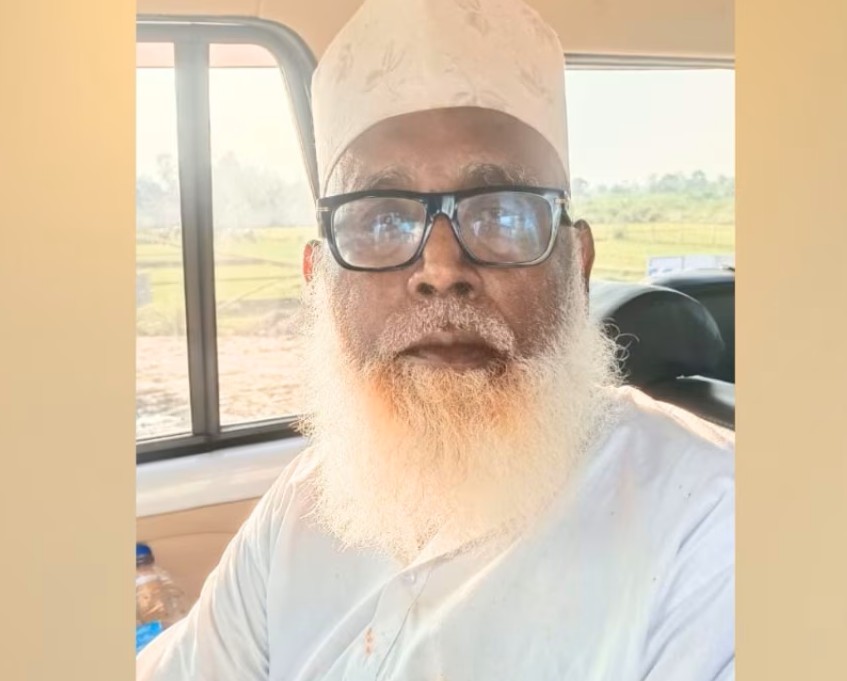
In a shocking turn of events, Changur Baba, whose real name is Jamaluddin, has found himself at the center of a mass conversion racket in Uttar Pradesh. The self-proclaimed godman, who has allegedly amassed wealth of up to Rs 500 crore, maintains his innocence amidst serious charges of coercing individuals into religious conversion, claiming he “doesn’t know anything.” His statements were made as he was escorted by the Uttar Pradesh Anti-Terrorist Squad (ATS) for a medical examination.
Arrest and Allegations
Changur Baba was apprehended alongside his aide, Nasreen, earlier this week. Authorities’ investigation reveals a complex and troubling network purportedly engaging in the manipulation and coercion of vulnerable individuals, especially Hindu women and minors, to convert to Islam. Techniques allegedly included deception, emotional coercion, and financial incentives.
The case gained significant attention after the arrest by the ATS, underlining the seriousness of the allegations directed at Changur Baba and his associates. As per reports, the organization operated in a structured manner, with a clear financial incentive system to promote conversions.
Financial Investigations Uncover Millions in Foreign Funding
The financial trail linked to Changur Baba and his affiliates is alarming. Investigations by the ATS and the Enforcement Directorate (ED) have unearthed around Rs 500 crore reportedly funneled into nearly 40 bank accounts associated with him. These funds are believed to have originated from foreign channels, primarily from Gulf countries and possibly Pakistan.
It is suspected that this money was used to heavily finance the conversion activities. According to insiders, individuals targeted for conversion were compensated differently based on their caste, with incentives ranging from Rs 8–10 lakh for those from other castes to as much as Rs 15–16 lakh for individuals classified as Brahmin, Sikh, or Kshatriya.
Accusations of Accumulating Illegal Wealth
In addition to the mass conversion charges, Changur Baba is also facing allegations of having accumulated illegal properties valued at over Rs 100 crore across various locations, including Balrampur and Pune. These properties, according to authorities, were constructed unlawfully on government land and lacked the necessary permits.
A lavish mansion in Balrampur, which is believed to have served as a hub for conversion counseling and activities, has faced demolition efforts from local authorities. A noteworthy find in the investigation includes a controversial text authored by Changur Baba, titled “Shijr-e-Tayyaba.” This self-published book is accused of being a tool for indoctrination and psychological manipulation.
National and International Implications
The ramifications of Changur Baba’s alleged activities extend beyond the state of Uttar Pradesh, stirring national concern. The claims suggest that he traveled internationally utilizing passports issued by Nepal, raising suspicions about potential links to broader networks of religious conversion efforts.
The investigation has also reported the discovery of what is being termed a “hate toolkit,” containing strategies for disseminating anti-Hindu propaganda. These alarming developments have led Chief Minister Yogi Adityanath to describe Changur Baba’s actions as “anti-social” and “anti-national.”
Multi-Agency Investigation Underway
Currently, a multi-agency investigation involving the ATS, ED, and potentially the National Investigation Agency (NIA) is in progress, as officials strive to understand the full scope and impact of this case. The seriousness of the situation is underscored by the extensive efforts being mobilized to address the allegations against Changur Baba and dismantle the alleged conversion racket.
As authorities continue their inquiries, the case is a vivid illustration of how complex religious dynamics can become intertwined with both local and international issues, raising pressing questions about societal vulnerabilities.
Changur Baba’s claims of innocence, coupled with the substantial evidence gathered by investigative agencies, create a tense atmosphere as the situation unfolds, leaving many to wonder about the broader implications of religious conversions driven by coercive tactics and financial gain.
Community Reactions and Protest
The allegations surrounding Changur Baba have sparked a wave of reactions from various community groups and local residents. Some individuals have come forward, sharing their own experiences of coercive conversions and expressing a deep sense of vulnerability within their communities. Hindu organizations have mobilized protests, demanding strict action against the perpetrators involved in the alleged conversion racket.

Moreover, local leaders and activists are using this opportunity to highlight broader issues concerning religious freedom and the importance of community solidarity against coercive practices. They argue that the incident demonstrates a need for enhanced vigilance and protection for vulnerable populations, particularly in areas with existing societal tensions.
Legal Proceedings and Challenges
As the investigations progress, Changur Baba’s legal team has prepared to dispute the allegations against him vigorously. His defense is expected to center around claims of religious freedom and the right to practice one’s beliefs without coercion or intimidation. The legal challenges ahead will likely involve scrutinizing the evidence presented by investigative agencies and any potential violations of civil rights.
However, should sufficient evidence be presented, Changur Baba could face severe implications under various legal frameworks, including those pertaining to anti-terrorism and organized crime. The prosecution will have the critical task of establishing a strong case to counter any defense strategies employed to mitigate his culpability.
Broader Discourse on Religious Conversion
The controversy surrounding Changur Baba brings to light the sensitive and often polarizing subject of religious conversion in India. It raises questions about the ethical and moral implications of converting individuals under duress or financial pressure, which is a deeply contentious issue in a nation marked by diverse religious identities.
Discussions have emerged about the role of government regulations in monitoring religious conversion practices and preventing exploitative tactics. Advocacy groups are calling for reforms to ensure a more transparent and ethical approach to religious dialogue, emphasizing the importance of consent in matters of faith.
Conclusion
As the investigation into Changur Baba’s activities continues, the implications of this case extend far beyond one individual’s alleged wrongdoings. It frames a larger narrative about religious conversion practices, community dynamics, and the intersection of faith and financial influence. With multiple agencies involved and a growing public discourse surrounding the issue, the next steps will crucially determine how allegations of coercive conversions are addressed and managed in a complex socio-religious landscape. The situation has raised pressing questions about protection for vulnerable communities and the need for safeguarding ethical practices in religious interactions.

Leave a Reply